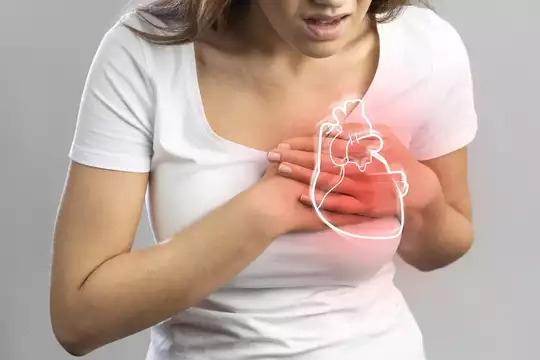In today’s fast-paced world, many individuals neglect their health, leading to a rise in serious conditions like heart attacks. This is not just limited to older adults or those with pre-existing heart issues; heart attacks can occur in individuals of all ages, even the young and seemingly healthy.
Understanding Heart Attacks
A heart attack occurs when blood flow to the heart is obstructed, damaging the heart muscles. High cholesterol levels, a sedentary lifestyle, and other health conditions can lead to blockages in the arteries. When the heart muscle doesn’t receive enough oxygen-rich blood, it can no longer function properly, potentially resulting in a heart attack.
Risk Factors for Heart Attacks
Several factors can increase the likelihood of experiencing a heart attack:
- Chronic illnesses: High blood pressure and diabetes can significantly raise your risk.
- Lifestyle choices: Smoking and excessive alcohol consumption are major contributors to heart health issues.
- High cholesterol: Elevated cholesterol levels can lead to arterial blockages.
- Stress: Chronic stress can negatively impact heart health.
- Lack of exercise and obesity: A sedentary lifestyle can increase the risk of heart-related issues.
- Genetics: A family history of heart attacks can also play a role.
Early Symptoms of Heart Attacks
Recognizing the early signs of a heart attack can be lifesaving. Here are three key symptoms to watch for:
1. Chest Pain
Chest pain is one of the most commonly recognized symptoms of a heart attack. This discomfort may feel like pressure, squeezing, fullness, or pain in the center or left side of the chest. It may last for more than a few minutes or come and go. If you experience such sensations, it’s important to seek medical advice promptly.
2. Shoulder Pain
Pain in the shoulder can also signal an impending heart attack. This discomfort may radiate from the chest to the shoulders, neck, back, and even the jaw or teeth. This type of pain might start subtly and gradually intensify. It’s vital to take any shoulder pain seriously, especially if accompanied by other symptoms.
3. Excessive Sweating
If you find yourself sweating profusely without any clear reason, this could indicate a heart attack. Many heart attack patients report excessive sweating before an event. This symptom is often accompanied by shortness of breath, which can further indicate that immediate attention is needed.
Conclusion
Being aware of the warning signs of a heart attack can make a significant difference in outcomes. Chest pain, shoulder pain, and unexpected sweating are key symptoms to monitor closely. If you experience these symptoms, do not hesitate to reach out for medical help.
Always consult with your doctor or a healthcare professional before making significant dietary changes for better heart health. They can provide personalized guidance based on your medical history and current health status.
Note: If you have any health-related concerns, please call us at +91-9058577992 to receive free consultation from our experienced doctors. Thank you.
